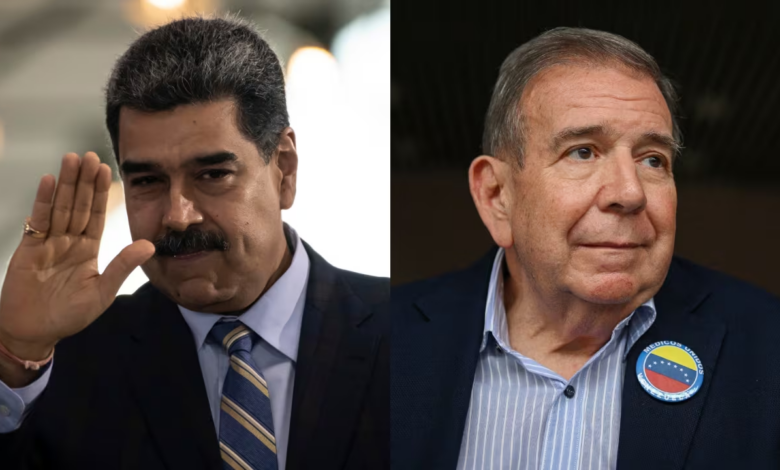Venezuela’s elections and the opposition’s attempt to turn towards America

Venezuela’s people are going to the polls after months of campaigning for the presidential elections in this country, which have not faced such an election atmosphere for years.
According to the ITN TV channel, 61-year-old Madurovi is running for the third six-year term while he and his ruling party are facing the most difficult election challenge in the past few decades.
The opposition groups of the Venezuelan government, after years of boycotting elections and internal disputes, have joined hands this time and supported a single candidate; Edmundo González Orocia, a 74-year-old former Venezuelan diplomat, will compete against President Maduro on behalf of a coalition of opposition groups.
President Maduro has promised that the elections will be held in a fair and free atmosphere, and the opposition, whose candidate is leading in the polls, wants to see the transfer of power from the socialist government that Hugo Chavez (deceased) founded at least 25 years ago.
Meanwhile, the president of Venezuela apologized for not accepting the entry of the former presidents of Latin America who, at the request of the opposition, intended to monitor the presidential election process on Sunday. “I apologize because Spain, Mexico and Panama were angry with Venezuela because we sent these people back,” he said in a meeting with international observers invited to the National Electoral Council. I apologize for repatriating Vincent Fox to Mexico, Miraya Moscoso to Panama.
The previous day, Venezuelan authorities barred the entry of several former presidents, current and former representatives who were planning to monitor the election process.
Last Wednesday, former Vice President Diosdado Cabello, who is often seen as Venezuela’s second in power (although he is no longer in power), had previously proposed a travel ban on former presidents. According to Maduro, the National Election Council has invited 910 observers from 100 countries.
Maduro said: There is a law here and the law is respected, and he emphasized that all the elements of the republican system will recognize the results.
However, the usual US interference in Venezuela’s internal affairs has shown itself this time in a different way. While the results of the Venezuelan elections have not yet been determined, the American authorities and the president of this country have begun to draw the line. Exactly the procedure that was implemented in 2018.
Earlier in 2018, Juan Guaidó, the main rival of Nicolás Maduro, declared victory after losing the presidential elections in Venezuela and raised the suspicion of widespread fraud in the country’s elections. A claim that was not supported inside Venezuela, but outside of this country, the US government and European countries supported it. In 2019, Guaido announced himself as the president of Venezuela and the American government provided him and his supporters with the country’s embassy in Washington, but after Trump’s defeat in the presidential election, his self-proclaimed government was dissolved and the Venezuelan embassy was inaccessible to his supporters. .
American officials have claimed that US President Joe Biden will adjust the sanctions against Caracas depending on his choice of president. Meanwhile, Washington has reimposed sanctions on Venezuela’s vital oil industry in recent months after Maduro failed to adhere to an electoral agreement it believed “guaranteed a universal democratic vote.” This process and Maduro’s prevention of several foreign observers from entering Venezuela caused him to react to the American conspiracy regarding suspected fraud and call the Venezuelan elections the most transparent electoral system in the world.
| © | Webangah News Hub has translated this news from the source of Young Journalists Club |


